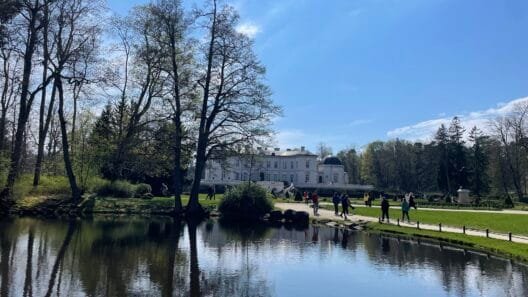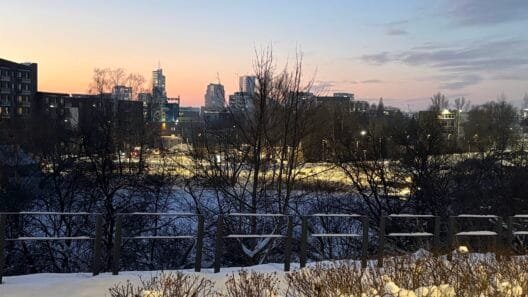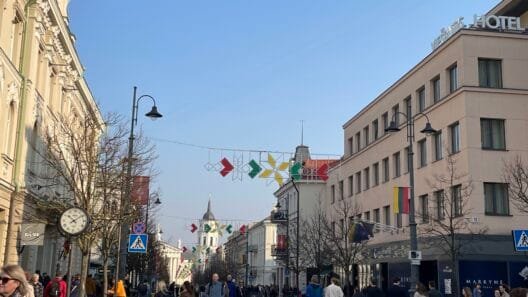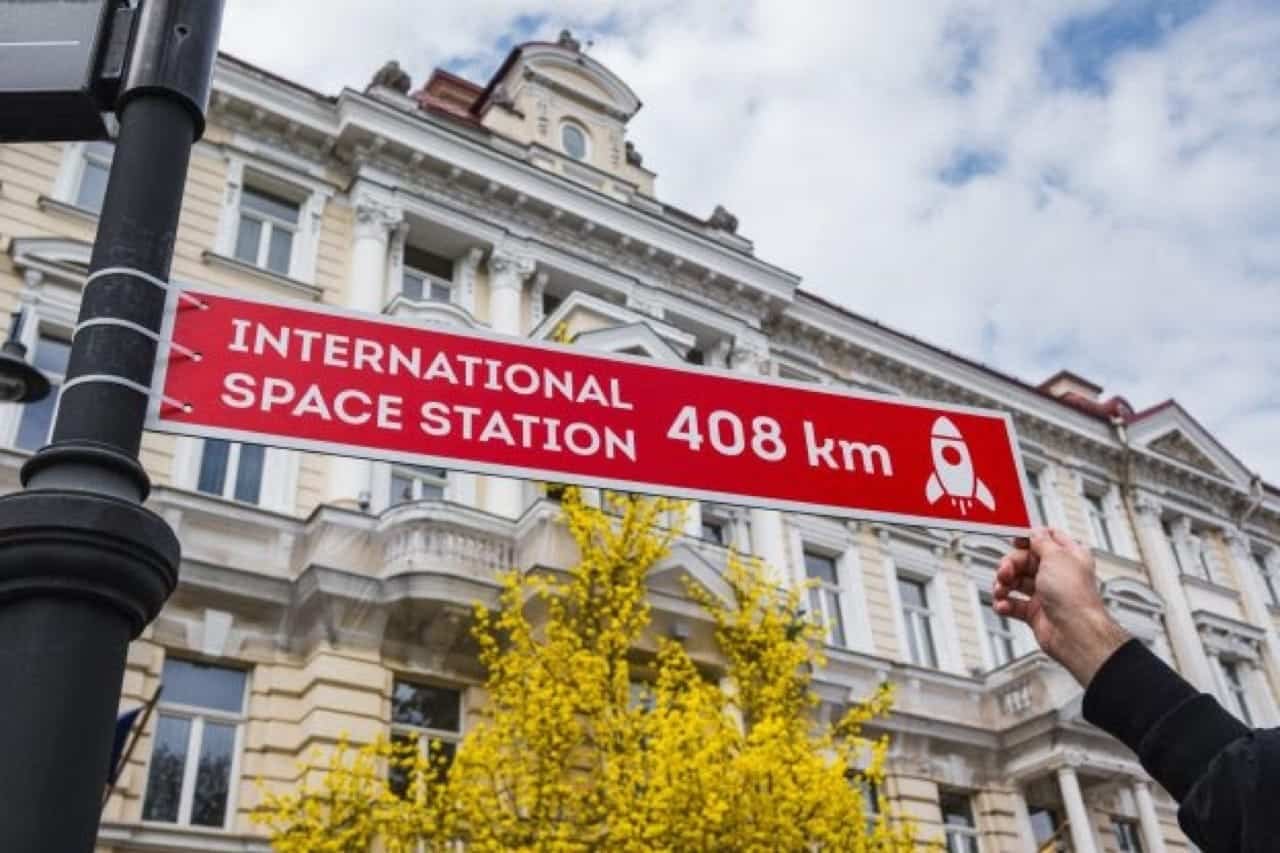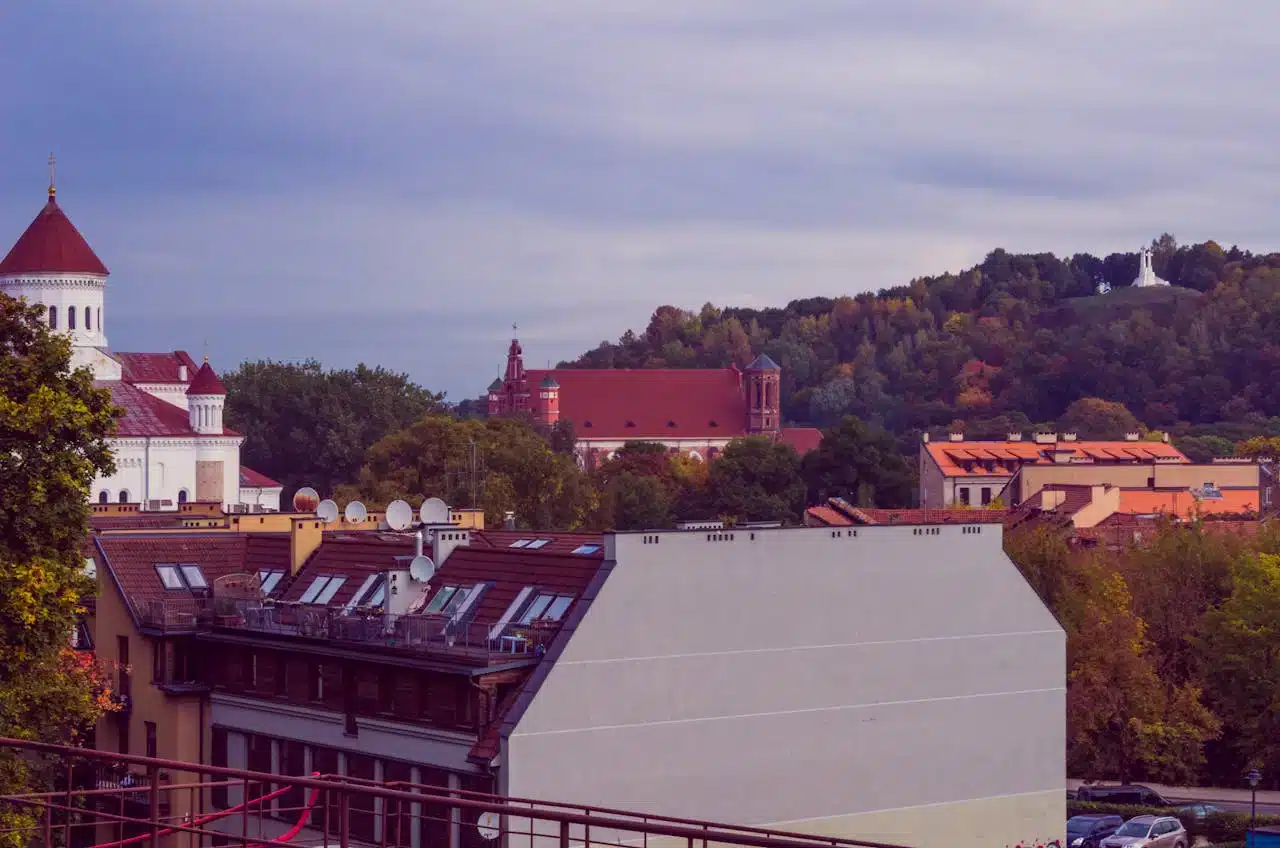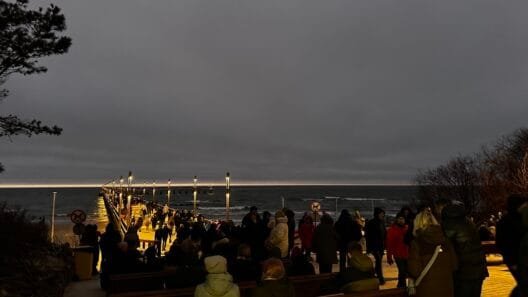Vilnius has never been afraid to think big. This May, the city’s playful ambition is on full display as street signs around the Old Town start pointing not to the nearest park or gallery, but to the International Space Station. That’s right—space is officially just a street sign away in the Lithuanian capital.
The quirky campaign, part of the city’s Space Days event on May 6, is all about celebrating Vilnius’s growing role in the space industry, while also bringing a bit of cosmic wonder to everyday city life. Organised by Go Vilnius, the city’s official tourism and business development agency, these ISS signs are mounted just like normal street signs, but with one major difference—they direct you to a location 408 kilometres above your head.
A City That Aims Higher—Literally
According to Dovilė Aleksandravičienė, CEO of Go Vilnius, the campaign reflects the city’s open-minded attitude and its hunger for bold ideas. “Vilnius is a city that welcomes open minds and bold ideas,” she says. “Whether you’re an artist, a technologist, or just someone looking to try something new, you’ll find space for your ambition here.”
The signs coincide with Space Days and the Baltic Military Summit, both taking place in early May. And in case you’re wondering—yes, the ISS really will be visible in the sky above Vilnius during the event, with actual flyover times available online. It’s a perfect alignment of imagination and reality.
A Capital With Cosmic Credentials
Back in 2014, Lithuania made headlines by launching its first satellites, LituanicaSAT-1 and LitSat-1, from the International Space Station. That moment sparked a transformation. Since then, the city has become a hub of innovation, with over 30 space-related companies operating in Lithuania—and that number is set to double within five years.
Take NanoAvionics, for instance. Founded in Vilnius just after the 2014 satellite launch, it’s now a global leader in small satellite missions, supporting over 120 missions worldwide. The city is also home to the European Space Agency’s business incubator, further cementing its role as a launchpad for the future of space tech.
Where Space Meets Every Discipline
But the space economy in Vilnius isn’t only for engineers and scientists. According to Eglė Elena Šataitė, Head of Space Hub LT, the ecosystem thrives on collaboration across many disciplines. “Today’s space industry brings together engineers, AI professionals, financiers, lawyers, and business development specialists,” she explains. Vilnius’s strength in lasers, security, and biotech is now feeding a new generation of talent that’s ready to take on the final frontier.
Laurynas Mačiulis, CEO of Vilnius-based Astrolight—a company developing high-speed laser communication with satellites—agrees. “The launch of Lithuania’s first satellites in 2014 really broke the inertia holding our industry in place,” he says. Since then, the synergy between private innovators and government support has kept things moving fast.
Portals, Possibility, and a View from Above
Vilnius is also part of the global Portals.org project, which uses public sculptures to create real-time video connections between cities—and sometimes space itself. “Whenever one of our Portals can’t connect to a partner city, we stream real-time video from the ISS instead,” says Benediktas Gylys, founder of the project. It’s a poetic reminder of just how connected we are—even when we’re separated by hundreds of kilometres of sky.
Space Days 2025: A Celebration of Skyward Thinking
As Space Days kicks off on May 6, Vilnius invites locals and visitors alike to look up—and think bigger. These clever signs aren’t just about space. They’re about sparking imagination, encouraging exploration, and showcasing a city that doesn’t shy away from big ideas. Whether you’re walking the cobbled streets of the Old Town or scanning the sky for satellites, you’re part of a place that celebrates curiosity.
In Vilnius, the sky isn’t the limit—it’s just the beginning.
